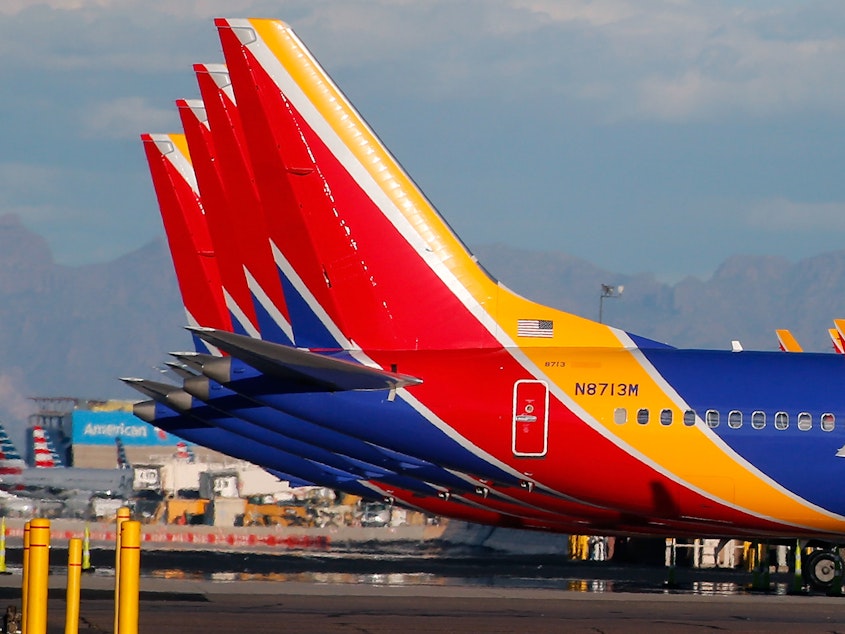As 737 Max Grounding Drags On, Boeing's Bottom Line Takes A Hit

Updated at 9:39 a.m. ET
Four months after its top-selling 737 Max airliner was grounded worldwide, Boeing on Wednesday announced a 35% drop in revenues and a loss of $2.9 billion in the second quarter. Last week, the company announced a $4.9 billion charge due to costs tied to the grounding.
Boeing said that because of continued uncertainty about when the 737 Max will return to service, it's delaying any new financial forecasts.
The company's $15.8 billion in revenues for three months that ended June 30 was down sharply from the $24.3 billion it reported a year earlier. Boeing's $2.9 billion loss for the latest quarter marked a reversal from the same period in 2018, when it recorded a $2.2 billion profit.
Boeing said its deliveries of commercial planes sank 54% — to 90 in the second quarter from 194 a year earlier.
Sponsored
Aviation regulators around the world grounded Boeing's top-selling plane in March after a pair of crashes in Indonesia and Ethiopia killed a total of 346 people.
Investigators looking into the cause of the crashes have focused on computer software installed after a plane redesign. The software was intended to stabilize the aircraft, but something went wrong, forcing the planes into repeated nosedives.
The Federal Aviation Administration found a new problem in Boeing's Max plane in June, meaning it could be several more months before the plane is certified to fly passengers again.
Boeing has already said it expects the plane to return to service by the end of this year. But on Wednesday the company said it's working with regulators to determine when the plane can fly again.
In the aftermath of the crashes, Boeing has been criticized for failing to train pilots adequately in how the new system worked.
Sponsored
With the 737 Max grounded, airlines around the world have had to cut flights and rearrange schedules. American Airlines said earlier this month that it canceled 7,800 flights during the second quarter of this year because the planes couldn't fly, while European budget carrier Ryanair has had to delay expansion plans and expects to fly 5 million fewer passengers next year.
"We are at the mercy of Boeing and the regulators," Ryanair CEO Michael O'Leary said in a conference call with analysts this month.
Boeing is one of the largest U.S. companies, with tentacles stretching throughout the economy, and economists expect the grounding of the plane to affect overall growth.
"We're already showing some signs of slowing momentum in the U.S. economy and slowing business investment overall, and this latest saga pertaining to the 737 Max is likely to continue to weigh on business investment," says Gregory Daco, chief U.S. economist at Oxford Economics. [Copyright 2019 NPR]



